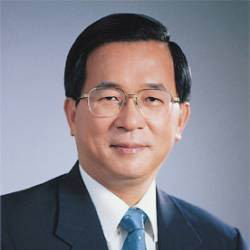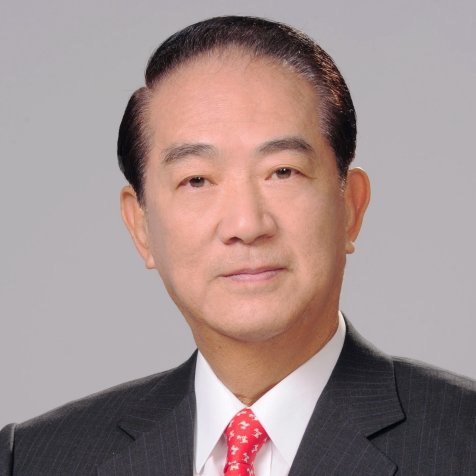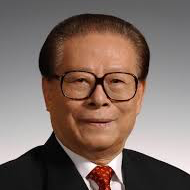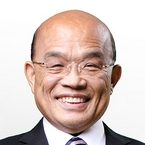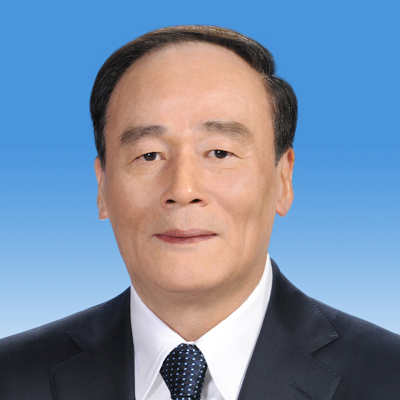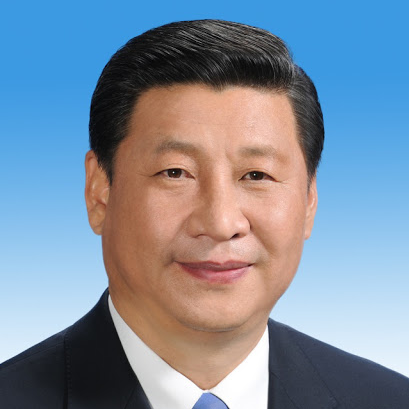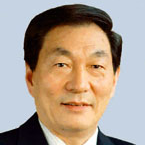Jan 21, 2020
Hong Kong Public Opinion Research Institute Press Conference – Press Materials
Detailed Findings
Press Release on January 21, 2020
POP releases popularity of cross-strait political figures
Special Announcements
- The predecessor of Hong Kong Public Opinion Program (HKPOP) was The Public Opinion Programme at The University of Hong Kong (HKUPOP). “POP” in this release can refer to HKPOP or its predecessor HKUPOP.
- The POP survey on popularity of cross-strait political figures is the last survey before July 1, 2020, whether it will be continued or not will depend on public support.
Abstract
POP successfully interviewed 500 and 508 Hong Kong residents in a double stage random telephone survey conducted by real interviewers in January. Latest results show that among the ten Mainland China and Taiwan political figures most well-known to Hong Kong people, Zhu Rongji continued to rank first in terms of popularity rating, attaining 59.0 marks. The 2nd to 10th ranks went to Tsai Ing-wen, Wen Jiabao, Hu Jintao, Ma Ying-jeou, Li Keqiang, Xi Jinping, Jiang Zemin, Han Kuo-yu and Chen Shui-bian. Compared to the previous survey, the support ratings of Han Kuo-yu, Ma Ying-jeou, Xi Jinping, Zhu Rongji, Li Keqiang, Wen Jiabao, Jiang Zemin and Hu Jintao have registered significant drops. Among them, that of Ma Ying-jeou has registered new record low since 1999, while the ratings of others have even dropped to their record low since they entered the list. On the contrary, the rating of Tsai Ing-wen has increased significantly and registered record high since she entered the list in 2011. The effective response rate of the rating survey is 57.7%. The maximum sampling error of ratings is +/-3.0 at 95% confidence level.
Contact Information
| Naming stage[4] | Rating stage[4] | ||
| Date of survey | : | 9-10/1/2020 | 14-15/1/2020 |
| Sample size[1] | : | 500 (including 251 landline and 249 mobile samples) | 508 (including 264 landline and 244 mobile samples) |
| Effective response rate[2] | : | 67.9% | 57.7% |
| Survey method | : | Random telephone survey conducted by real interviewers | |
| Target population | : | Cantonese-speaking Hong Kong residents aged 18 or above | |
| Sampling error[3] | : | Sampling error of percentages not more than +/-4%, that of ratings not more than +/-3.0 at 95% conf. level | |
| Weighting method | : | Rim-weighted according to figures provided by the Census and Statistics Department. The gender-age distribution of the Hong Kong population came from “Mid-year population for 2018”, while the educational attainment (highest level attended) distribution and economic activity status distribution came from “Women and Men in Hong Kong – Key Statistics (2018 Edition)”. | |
[1] This figure is the total sample size of the survey. Some questions may only involve a subsample, the size of which can be found in the tables below.
[2] Before September 2017, “overall response rate” was used to report surveys’ contact information. Starting from September 2017, “effective response rate” was used. In July 2018, POP further revised the calculation of effective response rate. Thus, the response rates before and after the change cannot be directly compared.
[3] All error figures in this release are calculated at 95% confidence level. “95% confidence level” means that if we were to repeat a certain survey 100 times with different random samples, we would expect 95 times having the population parameter within the respective error margins calculated. Because of sampling errors, when quoting percentages, journalists should refrain from reporting decimal places, whereas one decimal place can be used when quoting rating figures.
[4] The survey was conducted in two stages, i.e. naming and rating stages.
Latest Figures
In the naming survey, respondents could name, unprompted, up to 10 contemporary leaders in China or Taiwan whom they knew best. The top 12 nominees then entered the rating survey. In the rating survey, respondents were asked to rate individual political figures using a 0-100 scale, where 0 indicates absolutely no support, 100 indicates absolute support and 50 means half-half. After calculation, the bottom ones in terms of recognition rate were dropped; the remaining 10 were then ranked according to their support ratings to become the top 10 cross-strait political figures. Recent ratings of the top 10 cross-strait political figures are summarized below, in descending order of support ratings[5]:
| Date of survey | 17-20/7/17 | 20-23/7/18 | 17-19/7/19 | 14-15/1/20 | Latest change | |
| Sample size | 732-816[9] | 500 | 557-690 | 508 | — | |
| Response rate | 63.9% | 50.8% | 59.8% | 57.7% | — | |
| Latest findings[6] | Finding | Finding | Finding | Finding & error | Recognition rate | — |
| Zhu Rongji | 67.5{1}[8] | 66.8{1} | 65.3{1} | 59.0+/-2.6{1} | 86.8% | -6.3[8] |
| Tsai Ing-wen | 45.4{7}[8] | 43.0{8} | 47.4{6}[8] | 57.6+/-2.7{2} | 94.4% | +10.2[8] |
| Wen Jiabao | 58.7{2}[8] | 59.1{3} | 57.2{2} | 51.7+/-2.5{3} | 92.4% | -5.6[8] |
| Hu Jintao | 54.9{4}[8] | 56.2{6} | 53.0{4}[8] | 48.4+/-2.4{4} | 89.6% | -4.6[8] |
| Ma Ying-jeou | 53.0{6}[8] | 56.7{5}[8] | 53.2{3}[8] | 44.8+/-2.4{5} | 92.1% | -8.4[8] |
| Li Keqiang | 54.2{5}[8] | 57.3{4} | 50.5{5}[8] | 44.6+/-2.6{6} | 89.6% | -6.0[8] |
| Xi Jinping | 57.6{3}[8] | 59.3{2} | 47.1{7}[8] | 39.9+/-3.0{7} | 95.6% | -7.2[8] |
| Jiang Zemin | 44.6{8}[8] | 45.9{7} | 43.8{8} | 38.3+/-2.5{8} | 88.5% | -5.5[8] |
| Han Kuo-yu | — | — | 40.1[7] | 28.6+/-2.3{9} | 89.7% | -11.5[8] |
| Chen Shui-bian | 24.9{10} | 24.7{10} | 22.8{10} | 22.9+/-2.0{10} | 91.9% | +0.1 |
| Lee Teng-hui | 39.1[7] [8] | 39.9[7] | 38.2{9} | 37.0+/-2.5[7] | 80.7% | -1.2 |
| Soong Chu-yu | — | — | — | 32.0+/-2.1[7] | 81.9% | — |
| Han Zheng | — | — | 41.9[7] | — | — | — |
| Li Peng | 38.4{9} | 38.5{9} | — | — | — | — |
| Wang Qishan | — | 56.2[7] | — | — | — | — |
| Zhang Dejiang | 41.8[7] [8] | — | — | — | — | — |
[5] If the rounded figures are the same, numbers after the decimal point will be considered.
[6] Numbers in curly brackets { } indicate the rankings.
[7] Recognition rates were comparatively low in the rating survey.
[8] The difference between the figure and the result from the previous survey has gone beyond the sampling error at 95% confidence level, meaning that the change is statistically significant prima facie. However, whether the difference is statistically significant is not the same as whether they are practically useful or meaningful, and different weighting methods could have been applied in different surveys.
[9] The mobile sample was not included when survey results were released. The figures in the table above have been updated to reflect the results based on the combined landline and mobile sample. However, whether changes have gone beyond sampling errors is still determined based on the figures in the first release. After the update, the rating of Hu Jintao surpasses that of Li Keqiang and should be ranked the fourth in that survey.
Latest survey revealed that, among the ten Mainland China and Taiwan political figures most well-known to Hong Kong people, Zhu Rongji ranked first in terms of popularity rating, attaining 59.0 marks. The 2nd to 4th ranks went to Tsai Ing-wen, Wen Jiabao and Hu Jintao with scores of 57.6, 51.7 and 48.4 marks respectively. Ma Ying-jeou, Li Keqiang, Xi Jinping and Jiang Zemin occupied the 5th to 8th ranks with 44.8, 44.6, 39.9 and 38.3 marks correspondingly. The 9th to 10th ranks fell to Han Kuo-yu and Chen Shui-bian with respective scores of 28.6 and 22.9 marks. For this latest survey, Lee Teng-hui and Soong Chu-yu obtained support ratings of 37.0 and 32.0 marks respectively, but they were dropped due to their relatively low recognition rates.
Compared to the previous survey, the support ratings of Han Kuo-yu, Ma Ying-jeou, Xi Jinping, Zhu Rongji, Li Keqiang, Wen Jiabao, Jiang Zemin and Hu Jintao have registered significant drops. Among them, that of Ma Ying-jeou has registered new record low since 1999, while the ratings of others have even dropped to their record low since they entered the list. On the contrary, the rating of Tsai Ing-wen has increased significantly and registered record high since she entered the list in 2011. Besides, Soong Chu-yu is included in the survey again since 2015 and his rating has registered record low since he entered the list in 1999.
It should be noted that our list of “top 10 cross-strait political figures” only includes those best known to the Hong Kong public, ranked according to their support ratings. Other political figures may have very high or low support ratings, but they are excluded from the list because they are relatively less well-known.
Opinion Daily
In 2007, POP started collaborating with Wisers Information Limited whereby Wisers supplies to POP a record of significant events of that day according to the research method designed by POP. These daily entries would then become “Opinion Daily” after they are verified by POP.
For the polling items covered in this press release, the previous survey was conducted from 17 to 19 July, 2019 while this survey was conducted from 14 to 15 January, 2020. During this period, herewith the significant events selected from counting newspaper headlines and commentaries on a daily basis and covered by at least 25% of the local newspaper articles. Readers can make their own judgment if these significant events have any impacts to different polling figures.
| 11/1/20 | Tsai Ing-wen wins Taiwan’s presidential election. |
| 9/1/20 | Experts say Wuhan pneumonia is caused by a new coronavirus. |
| 6/1/20 | Director of the Liaison Office Luo Huining starts his first day on job. |
| 3/1/20 | Wuhan authorities announce an increase of pneumonia cases to 44. |
| 28/12/19 | Number of tours for tourists from mainland China has plunged. |
| 18/12/19 | Xi Jinping visits Macau. |
| 16/12/19 | Carrie Lam pays a duty visit to Beijing. |
| 13/12/19 | China and the US reach agreement on phase one of the trade deal. |
| 3/12/19 | A seminar marking the 20th anniversary of implementing Macau Basic Law is held in Beijing. |
| 14/11/19 | Xi Jinping expresses his views on Hong Kong. |
| 1/11/19 | The press conference on the Fourth Plenary Session of the 19th Communist Party of China Central Committee is held. |
| 22/10/19 | Taiwan requests to send officers to Hong Kong to escort Chan Tong-kai to Taiwan for trial. |
Data Analysis
Among the ten Mainland China and Taiwan political figures most well-known to Hong Kong people, Zhu Rongji continued to rank first in terms of popularity rating, attaining 59.0 marks. The 2nd to 10th ranks went to Tsai Ing-wen, Wen Jiabao, Hu Jintao, Ma Ying-jeou, Li Keqiang, Xi Jinping, Jiang Zemin, Han Kuo-yu and Chen Shui-bian. Compared to the previous survey, the support ratings of Han Kuo-yu, Ma Ying-jeou, Xi Jinping, Zhu Rongji, Li Keqiang, Wen Jiabao, Jiang Zemin and Hu Jintao have registered significant drops. Among them, that of Ma Ying-jeou has registered new record low since 1999, while the ratings of others have even dropped to their record low since they entered the list. On the contrary, the rating of Tsai Ing-wen has increased significantly and registered record high since she entered the list in 2011.
